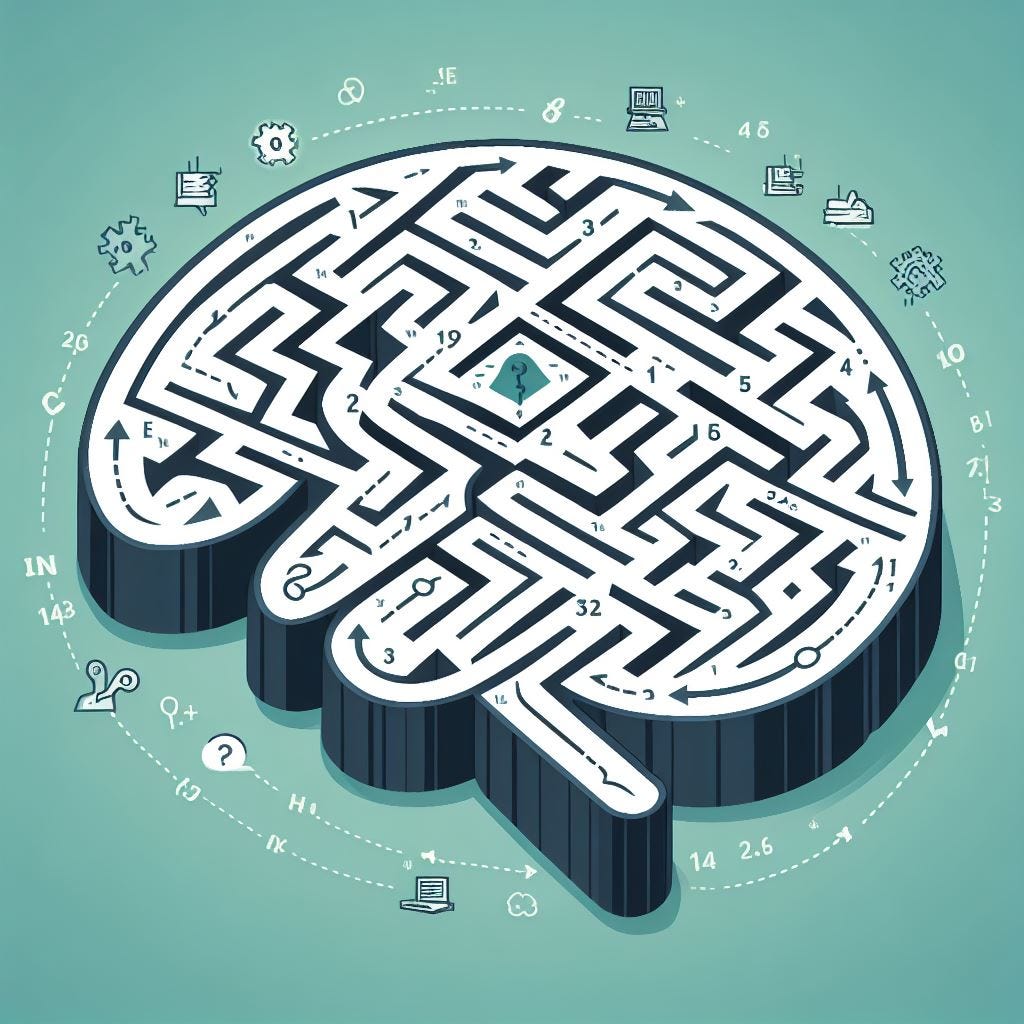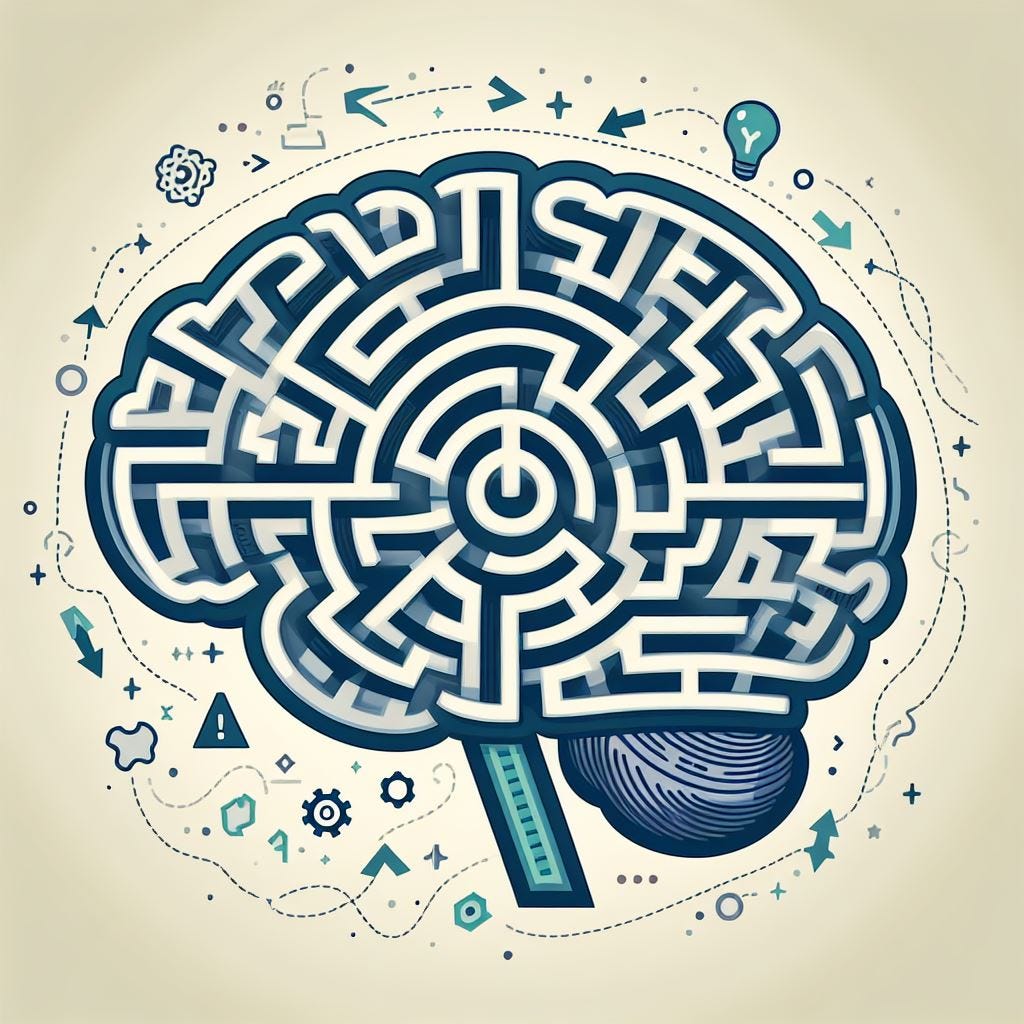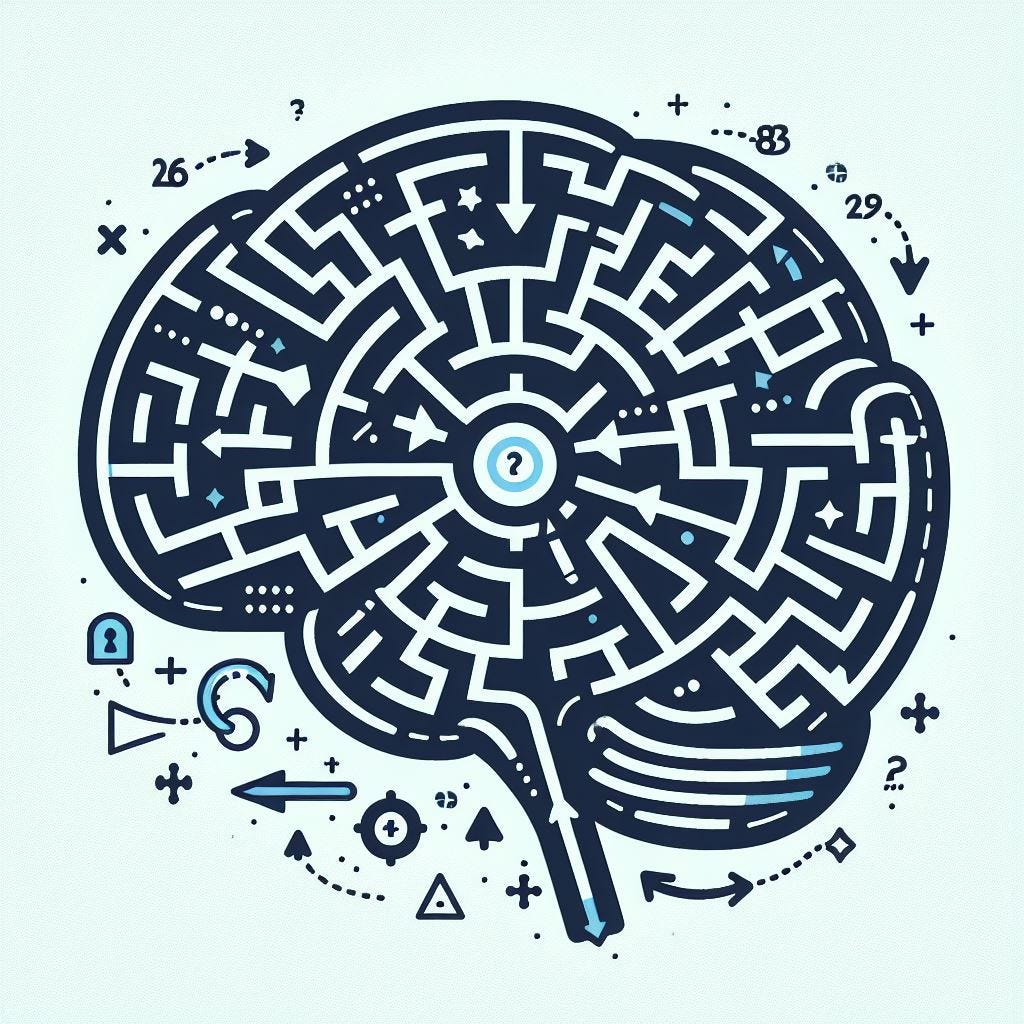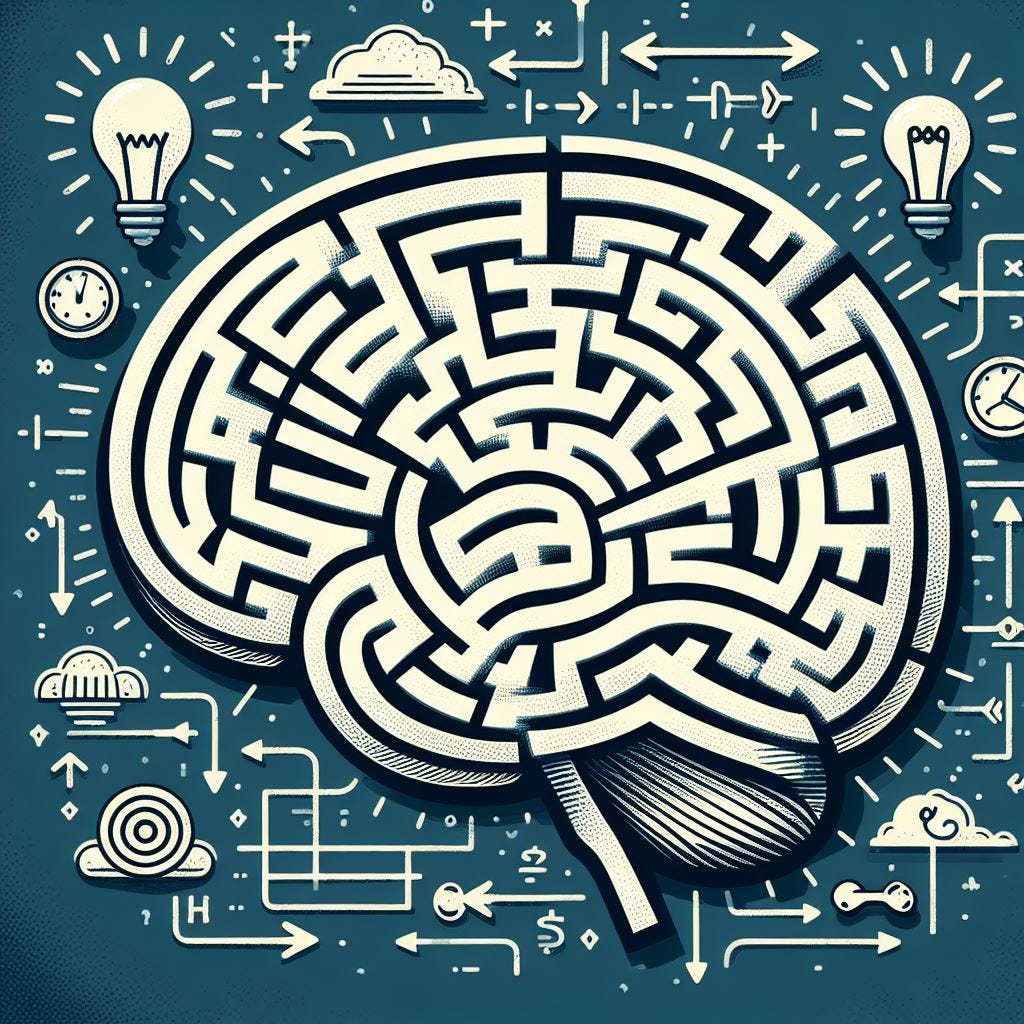100 Ways Our Mind Tricks Us Daily
 Anchoring , Gifting , Cheerleader Biases
Anchoring , Gifting , Cheerleader Biases
Anchoring Bias : People rely too heavily on the first piece of information encountered (the “anchor”) when making decisions. Example: A car salesman starts negotiations with a high price, influencing the buyer’s perception of the car’s value.Actor-Observer Bias : Tendency to attribute one’s own actions to external factors while attributing others’ actions to internal characteristics. Example: Blaming being late to traffic, but attributing someone else’s tardiness to laziness.Ambiguity Effect : Preferring options with known probabilities over options with unknown probabilities. Example: Choosing a fixed-rate mortgage over an adjustable-rate mortgage because the latter’s future interest rates are uncertain.Anecdotal Fallacy : Relying on personal anecdotes or isolated examples rather than systematic evidence or data. Example: Believing a weight loss supplement is effective because a friend claims it helped them lose weight, despite lack of scientific evidence.Attentional Bias : Paying attention to certain stimuli while ignoring others. Example: Someone with social anxiety focusing on negative social cues in a conversation while disregarding positive ones.Availability Heuristic : Estimating the likelihood of events based on their availability in memory. Example: After hearing news reports of shark attacks, someone becomes overly fearful of swimming in the ocean, despite it being statistically unlikely to encounter a shark.Bandwagon Effect : People tend to do or believe things because many others do or believe the same. Example: Voting for a candidate because they are leading in the polls, rather than considering their policies or qualifications.Barnum Effect : Tendency to believe vague and general personality descriptions as uniquely applicable to oneself. Example: Feeling like a horoscope accurately describes personal traits despite its generality and lack of specificity.Belief Bias : Evaluating the strength of an argument based on the believability of its conclusion. Example: Accepting a poorly reasoned argument because the conclusion aligns with one’s personal beliefs.Ben Franklin Effect : The tendency for people to like someone more after they do them a favor. Example: A person becomes friendlier towards a coworker who helps them with a project.Bias Blind Spot : Recognizing cognitive biases in others but failing to see them in oneself. Example: Criticizing a friend for their confirmation bias while failing to recognize one’s own tendencies in the same regard.Cheerleader Effect : Perceiving individuals as more attractive when they are in a group rather than alone. Example: Finding members of a sports team more attractive when seen together, despite not finding them as appealing individually.Choice-Supportive Bias : Remembering one’s choices as better than they actually were. Example: A person recalls their decision to invest in a certain stock as wise, despite it performing poorly in reality.Clustering Illusion : Seeing patterns in random data due to a bias towards clustering. Example: Believing that certain numbers are “lucky” because they appear frequently in lottery draws, despite each draw being independent and random.Cognitive Dissonance : Feeling discomfort when holding conflicting beliefs or attitudes, leading to a tendency to modify one’s beliefs to reduce the dissonance. Example: A smoker acknowledging the health risks of smoking but rationalizing it by saying, “I exercise and eat healthily, so it’s not as bad for me.”Cognitive Load Effect : Reduced cognitive performance when working on tasks that require a high cognitive load. Example: Having difficulty concentrating on reading comprehension while also trying to solve complex math problems.Confirmation Bias : Seeking, interpreting, and remembering information that confirms one’s preexisting beliefs. Example: A climate change skeptic dismisses evidence supporting global warming and only pays attention to studies that question it.Conjunction Fallacy : Believing that the conjunction of two events is more likely than one of the events alone. Example: Believing that it’s more likely for a person to be both a teacher and an environmentalist than just a teacher.Conservatism Bias : Clinging to one’s initial beliefs despite new evidence to the contrary. Example: Continuing to believe in a conspiracy theory even after it has been debunked by credible sources.Continued Influence Effect : Persistence of inaccurate information even after it has been corrected. Example: Despite retractions and corrections, rumors about a celebrity’s behavior continue to circulate and influence public opinion.Curse of Knowledge : Difficulty in imagining what it’s like not to know something that one already knows. Example: An expert in a field struggles to explain concepts to beginners because they assume prior knowledge that the beginners do not possess.Declinism : Belief that a society or institution is in decline. Example: A person believes that the quality of education has been steadily decreasing over the years, despite evidence showing improvements in various educational metrics.Decoy Effect : Changing preference between two options when a third, less attractive option is added. Example: Choosing a medium-sized popcorn at the movies instead of a small one after seeing the large size, which seems like a better deal.Diderot Effect : Introducing a new possession that clashes with existing possessions, leading to a spiral of consumption. Example: Buying a new outfit and feeling compelled to purchase new accessories to match it.Dunning-Kruger Effect : Unskilled individuals overestimating their abilities while experts underestimate theirs. Example: A novice musician believing they’re as talented as professionals, while skilled musicians recognize the vast gap in ability.Egocentric Bias : Tendency to rely too heavily on one’s own perspective when making judgments about others. Example: Assuming that everyone enjoys the same activities or shares the same beliefs as oneself.Einstellung Effect : Tendency to stick to familiar strategies and ignore better alternatives. Example: Trying to solve a problem using the same method that worked previously, even though there may be more efficient approaches available.Endowment Effect : Assigning higher value to things simply because one owns them. Example: A person values their old, worn-out jacket more than its market price because of sentimental attachment.False Consensus Effect : Overestimating the extent to which others share one’s beliefs, attitudes, or opinions. Example: Assuming that most people agree with your political views because your friends and family do, despite evidence to the contrary.False Memory Effect : Recollection of an event that did not actually happen or recollection that is substantially different from the way it actually happened. Example: Recalling a childhood event with vivid detail but later discovering that it never occurred.Focusing Effect : Giving too much weight to one aspect of an event or decision, leading to an inaccurate assessment of its overall importance. Example: Overemphasizing the importance of a single bad test score when evaluating overall academic performance.Frequency Illusion : Belief that something has increased in frequency after noticing it for the first time. Example: After buying a new car, a person starts noticing the same make and model everywhere, leading them to believe that its popularity has suddenly surged.Functional Fixedness : Inability to see alternative uses for objects or solutions to problems due to being fixated on their typical functions. Example: Being unable to use a book as a doorstop because it’s seen solely as a reading material. Gambler, Groupthink, Hawthorne, Just World Biases
Gambler, Groupthink, Hawthorne, Just World Biases
Gambler’s Fallacy : Belief that past events influence future outcomes in random events, like gambling. Example: Believing that a coin is more likely to land on heads after a series of tails, despite each flip being independent of previous ones.Group Attribution Error : Attributing positive actions of an individual to their membership in a group while attributing negative actions to their individual characteristics. Example: Praising a team’s success solely to their talent, but blaming a single member for the team’s failure.Group Polarization : Enhancement of group members’ pre-existing attitudes through group discussion. Example: A group of environmentalists becomes more committed to their cause after discussing environmental issues together.Groupthink : Pursuit of consensus within a group overrides realistic appraisal of alternative courses of action. Example: A team agrees to a flawed strategy to avoid conflict, leading to poor decision-making.Halo Effect : Allowing positive traits in one area to influence perceptions of unrelated traits or abilities. Example: Assuming that someone who is physically attractive is also intelligent or kind.Hawthorne Effect : Altering one’s behaviour or performance in response to being observed or studied. Example: Employees working harder or more efficiently when they know they are being monitored by management.Hindsight Bias : Seeing events as more predictable after they have occurred. Example: After a company’s stock price plummets, investors claim it was obvious that the company was in trouble, even though many didn’t foresee it beforehand.Hostile Attribution Bias : Tendency to interpret ambiguous actions by others as hostile. Example: Assuming a coworker’s neutral comment during a meeting was intended as a personal attack.Hyperbolic Discounting : Preference for smaller, immediate rewards over larger, delayed rewards, even if the latter is objectively better. Example: Choosing to receive $ today rather than $ a month from now.Illusion of Control : Overestimating one’s ability to control or influence outcomes that are largely determined by chance or external factors. Example: Believing that blowing on dice increases the likelihood of rolling a high number in a game of chance.Illusion of Explanatory Depth : Believing one understands a concept more deeply than they actually do. Example: Feeling confident in explaining how a smartphone works but struggling to explain the details of its internal components.Illusory Correlation : Perceiving a relationship between two unrelated events or variables. Example: Believing that it always rains when you wash your car, even though there’s no logical connection between the two events.Illusory Truth Effect : Belief that information is more accurate when it is repeated, regardless of its actual truthfulness. Example: A false rumor becomes more believable over time as it is repeated by multiple sources.Impact Bias : Overestimating the intensity or duration of emotional reactions to future events. Example: Assuming that winning the lottery will bring lasting happiness, despite research showing that lottery winners often return to their baseline levels of happiness over time.Inattentional Blindness : Failure to notice unexpected stimuli when attention is focused elsewhere. Example: Not seeing a person in a gorilla suit walking through a basketball game when focused on counting passes between players.Information Bias : The belief that more information is always better, even if it doesn’t contribute to better decisions. Example: Spending hours researching minor details before making a purchase, even though the additional information won’t significantly impact the decision.Ingroup Bias : Tendency to favor members of one’s own group over those outside the group. Example: Rooting for a sports team from one’s hometown, even if they’re not the best team in the league.Ingroup Favouritism : Preferring members of one’s own group over those outside the group. Example: Giving preferential treatment to colleagues from the same alma mater.Just-World Hypothesis : Belief that people get what they deserve and deserve what they get. Example: Assuming that a person who is unemployed must have done something to deserve it, rather than considering external factors like economic conditions or discrimination.Martha Mitchell Effect : Discrediting a person’s valid concerns by labeling them as mentally unstable. Example: Dismissing a whistleblower’s claims of corruption within a company by claiming they are paranoid or delusional.Mere Exposure Effect : Preference for things simply because they are familiar. Example: Developing a liking for a song after hearing it repeatedly on the radio, even if it was initially disliked.Misinformation Effect : Incorporating misleading information into one’s memory of an event after being exposed to that misinformation. Example: Recalling details of a car accident based on news reports, even if those details were incorrect.Negativity Bias : Giving more weight to negative experiences or information than positive ones. Example: Focusing on a single criticism in a performance review, even though there were numerous compliments as well.Normalcy Bias : Underestimating the likelihood of a disaster or emergency occurring because it hasn’t happened before. Example: Ignoring evacuation warnings during a hurricane because previous storms haven’t caused significant damage. Ostrich, Placebo Biases
Ostrich, Placebo Biases
Observer Expectancy Effect : Researchers’ expectations unintentionally influence the behaviour of the subjects they are observing. Example: A teacher expects certain students to perform better, which unconsciously affects their interactions and evaluations.Omission Bias : Preferring inaction to action, even when the outcome of inaction is potentially worse. Example: Choosing not to vaccinate a child due to fears of side effects, despite the greater risk of contracting a preventable disease.Optimism Bias : Belief that one is less likely to experience negative events compared to others. Example: A smoker believes they are less likely to develop lung cancer than other smokers.Ostrich Effect : Avoiding information that is perceived as negative or threatening. Example: Ignoring financial statements when the stock market is down because it’s too stressful to confront.Overconfidence Effect : Overestimating one’s abilities, knowledge, or judgment. Example: A student is confident they’ll ace an exam without studying, only to perform poorly due to overestimating their grasp of the material.Over justification Effect : Decrease in intrinsic motivation when extrinsic rewards are introduced. Example: A child loses interest in drawing for fun after being rewarded with stickers for doing so.Paradox of Choice : Increased anxiety and dissatisfaction when faced with too many options. Example: Spending hours choosing a Netflix show to watch because there are too many choices available.Peak-End Rule : Judging an experience based on its most intense moment and how it ends. Example: Remembering a vacation as enjoyable despite some unpleasant experiences because the last day was relaxing.Placebo Button Effect : Pressing a button that does nothing, but it’s present to provide the illusion of control. Example: “Close Door” buttons in elevators that don’t actually close the doors any faster but give passengers the feeling of control.Placebo Effect : Experiencing a perceived improvement in symptoms after receiving a treatment that has no therapeutic effect. Example: Feeling better after taking a sugar pill believed to be a pain reliever.Primacy Effect : Tendency to remember information presented at the beginning of a list or sequence better than information presented later. Example: Remembering the first few items on a grocery list but forgetting items added later.Projection Bias : Assuming that others share the same beliefs, values, or attitudes as oneself. Example: Assuming everyone at a party enjoys dancing because you do.Reactance : Reacting against perceived threats to one’s freedom by asserting one’s autonomy. Example: Teenagers rebelling against strict rules imposed by parents or authority figures.Reactive Devaluation : Devaluing proposals or offers simply because they originated from an adversary or opponent. Example: Rejecting a peace offering from a rival country solely because of past conflicts.Recency Effect : Tendency to remember information presented at the end of a list or sequence better than information presented earlier. Example: Remembering the last few points made in a presentation but forgetting the main points discussed at the beginning.Regression Bias : Belief that trends or phenomena will revert to the mean over time, without considering other factors that may influence outcomes. Example: Assuming that a stock’s price will always return to its historical average, despite changes in market conditions or company performance.Rhyme as Reason Effect : The tendency to judge statements as more accurate or truthful when they rhyme. Example: “What sobriety conceals, alcohol reveals” is perceived as more profound or truthful because it rhymes.Self-Handicapping : Engaging in behaviours that create obstacles to success, providing a potential excuse for failure. Example: Procrastinating on studying for an exam and then blaming a poor performance on lack of time to prepare.Self-Perception Theory : Forming attitudes and beliefs by observing one’s own behaviuor. Example: Someone decides they must enjoy cooking because they find themselves frequently cooking meals at home.Self-Serving Bias : Taking credit for successes but blaming external factors for failures. Example: Believing that getting a promotion was due to hard work and talent, but attributing a poor performance review to unfair treatment by the boss.Semantic Priming : Exposure to one stimulus influencing the response to another stimulus based on semantic association. Example: Hearing the word “yellow” makes someone more likely to recognize the word “banana” in a word recognition task.Semantic Stretching : Expanding the meaning of words or concepts to fit one’s own beliefs or agenda. Example: Interpreting the term “freedom” differently to support various political arguments.Semmelweis Reflex : Rejecting new evidence or knowledge because it contradicts established beliefs or paradigms. Example: Doctors dismissing a new treatment method because it challenges conventional medical practices.Serial Position Effect : Tendency to remember items at the beginning (primacy effect) and end (recency effect) of a list more easily than those in the middle. Example: Remembering the first and last items on a grocery list but forgetting items in the middle.Social Comparison Bias : Evaluating one’s abilities and opinions by comparing oneself to others, leading to a biased self-assessment. Example: Feeling inadequate about one’s accomplishments after comparing them to a peer who seems more successful.Social Desirability Bias : Tendency to respond in a way that is perceived favourably by others, rather than truthfully. Example: Giving socially acceptable answers in a survey about sensitive topics like drug use or prejudice.Social Facilitation Effect : Improvement in individual performance when working in the presence of others. Example: A musician performs better during a concert than during practice alone.Social Identity Theory : People categorize themselves and others into social groups, leading to in-group favouritism and out-group discrimination. Example: Feeling a sense of belonging and loyalty to one’s country or sports team.Social Loafing : Reduction in individual effort when working on a group task compared to when working alone. Example: A student contributes less to a group project than they would to an individual assignment.Social Proof : Adopting the beliefs or actions of a group because of the influence of social pressure or norms. Example: Laughing at a joke that isn’t funny because everyone else is laughing.Status Quo Bias : Preference for the current state of affairs over change, even when the change may be beneficial. Example: Resisting switching to a more efficient but unfamiliar software system because it requires learning new processes.Stereotype Threat : Performance decline when individuals are reminded of negative stereotypes about their group. Example: Women performing worse on a math test after being told that men typically outperform them in math.Stereotyping : Making assumptions about a person or group based on their perceived characteristics or membership in a particular category. Example: Assuming that all members of a certain ethnic group are good at math.Survivorship Bias : Focusing on the successes or survivors while overlooking the failures or casualties. Example: Studying successful entrepreneurs and trying to emulate their strategies without considering the numerous failed businesses that followed similar paths.


 Mind Maze
Mind Maze
Temporal Discounting : The tendency to devalue future rewards in favor of immediate ones. Example: Choosing to spend money on a night out with friends instead of saving it for retirement.Time-Discounting Bias : Preferring immediate rewards over larger, delayed rewards. Example: Choosing to spend money on entertainment today rather than saving for retirement in the future.Tragedy of the Commons : Exploitation of shared resources for individual gain, leading to depletion or degradation of the resource. Example: Overfishing in international waters where there are no regulations or enforcement mechanisms.Vicarious Reinforcement : Experiencing pleasure or reinforcement by watching someone else receive rewards or punishments. Example: Feeling happy when a favourite sports team wins a game, even though the individual didn’t personally participate in the victory.Weber’s Law : The principle that the perceived magnitude of a stimulus change is proportional to the original stimulus magnitude. Example: Imagine you are holding a heavy weight in your hand. If you add a small amount of weight to it, you might not notice the difference. However, if you add the same small amount of weight to a much lighter object, you would likely notice the change immediately.Wishful Thinking : Believing in something because one wishes it were true, regardless of evidence. Example: Investing in a company’s stock because you hope it will perform well, despite signs indicating otherwise.Zero Sum Bias : Belief that a situation must have winners and losers, neglecting the possibility of win-win outcomes. Example: Approaching negotiation with the mindset that one party’s gain must come at the expense of the other party.Zero-Risk Bias : Preferring the complete elimination of a small risk over a reduction in a larger, but less severe, risk. Example: Investing a large amount of money in expensive security measures to prevent a rare event like terrorism, while ignoring more common risks like theft.Zeigarnik Effect : Tendency to remember uncompleted or interrupted tasks better than completed ones. Example: Remembering a list of chores left unfinished at the end of the day more than the ones completed.





















































